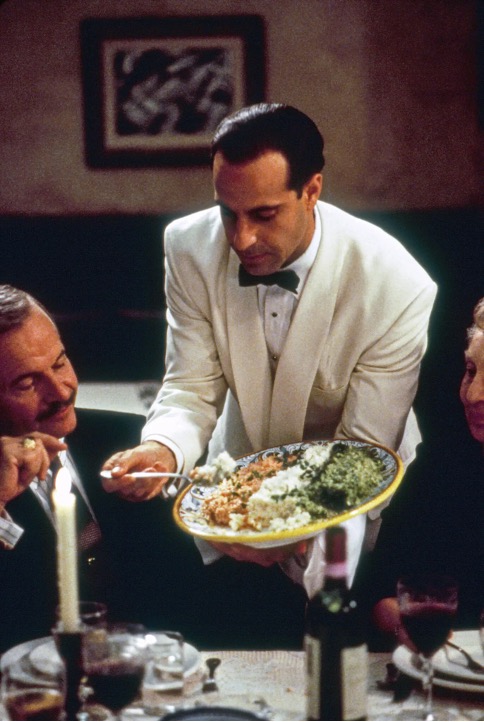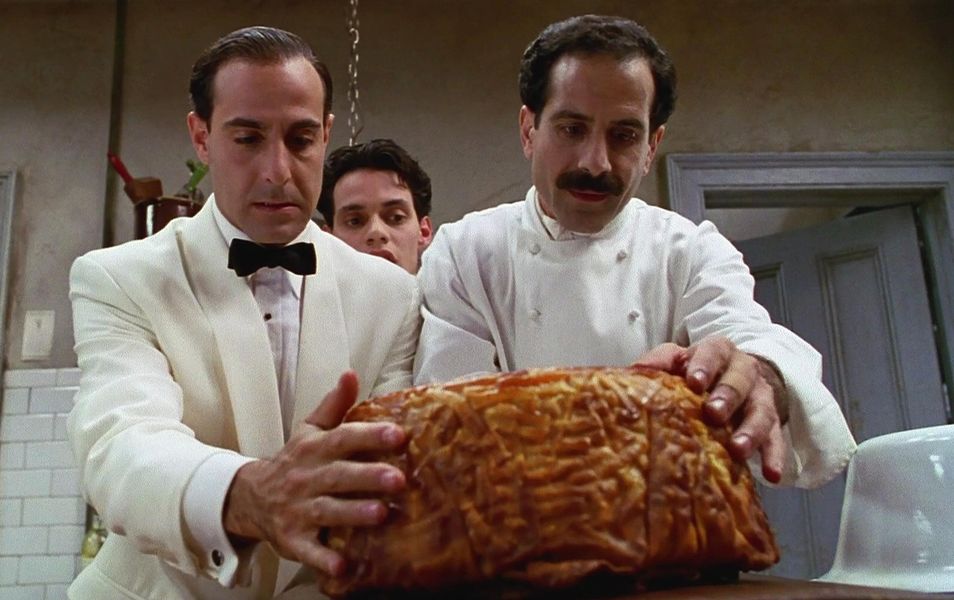ZOE DAHSE reviews Stanley Tucci’s memoir, Taste: My Life Through Food.
Stanley Tucci’s Taste: My Life Through Food is a flavourless and unappetising memoir on food which fails to impress.
When my dad saw that I was reading Taste: My Life Through Food, Stanley Tucci’s food memoir lauded by critics, he eyed me with scepticism. Having attempted to watch Tucci’s Searching for Italy, the Emmy-awarded CNN series which follows Tucci through Italy in search of the delights of the country’s regional cuisines, he confessed he had not been able to finish it. He described the show as ‘too American’, given that whenever Tucci tasted a dish, the ensuing moans of ‘Oh My God’ and ‘Ahhhh’ delivered by the man himself seemed to be overkill, disingenuous even.
In his memoir, Tucci himself complains about such people on TV shows, describing it as a ‘bit of a bugbear of [his]’, before diving into an analysis of how to discern when someone really tastes something. (‘People will often tilt their heads to one side, usually to the left’, apparently.) Swathes of this memoir are devoted to meaningless assertions by Tucci that I just could not care about despite trying again and again to do so, given the high praise it has been awarded.
This memoir drags, veering between a half-hearted attempt at a cookbook (with measures such as ‘A fuck of a lot of butter’ proving useless and of no comic effect) and a relatable comedic memoir, failing to be either. Fans of Tucci’s work, most notably The Devil Wears Prada and Julie and Julia, might resonate more with Tucci’s narrative voice, if they can put aside the memoir’s lack of good storytelling in favour of the actor, director, and all-around icon they know him to be.

So why does it fall so flat? Pointless, overdrawn sentences are effective in agonising the reader as Tucci describes wonderful dishes he has eaten. Unfortunately, every restaurant he recommends proves to be ‘defunct’ after a bit of research, although he is not sure why. The pandemic might give an answer. After a quick Google search myself, my intuition is confirmed. Meanwhile, Tucci doesn’t investigate further, merely expressing his ‘heartbreak’ in a lazy footnote while admitting he does not know the reason for the restaurant’s closure, leaving the reader grappling with the question of why they should care at this point.
Countless celebrity name-dropping serves to no end and does not in any way contribute to the narrative, whilst Tucci’s refusal to describe his family members or his career results in a sloppy, haphazard style of writing. A memoir requires a real story to be told, not simply the reader being told of a delicious dish Tucci had here and an even more delicious one he had there, created by this splendid person and eaten with that even more splendid person.
The penultimate chapter hurriedly dashes through his oral cancer diagnosis and its effect on his relationship with food. Despite the obvious emotive element, I still find it hard to care enough, given how polarising Tucci’s narrative has been up to this point.
Ultimately, Tucci’s lifelong love for food is the focus of this memoir, but do we care enough to read about it? If I knew him personally, I probably would, because I might understand his awkward attempt at humour. As a stranger, it means nothing to me.
Maybe I’m being too harsh. I just struggled too much with a memoir that failed to sustain my interest. Critics, on the other hand, applaud it. Read it and decide for yourself, but I will not be returning to this book any time soon.
Featured image courtesy of Rysher Entertainment.





